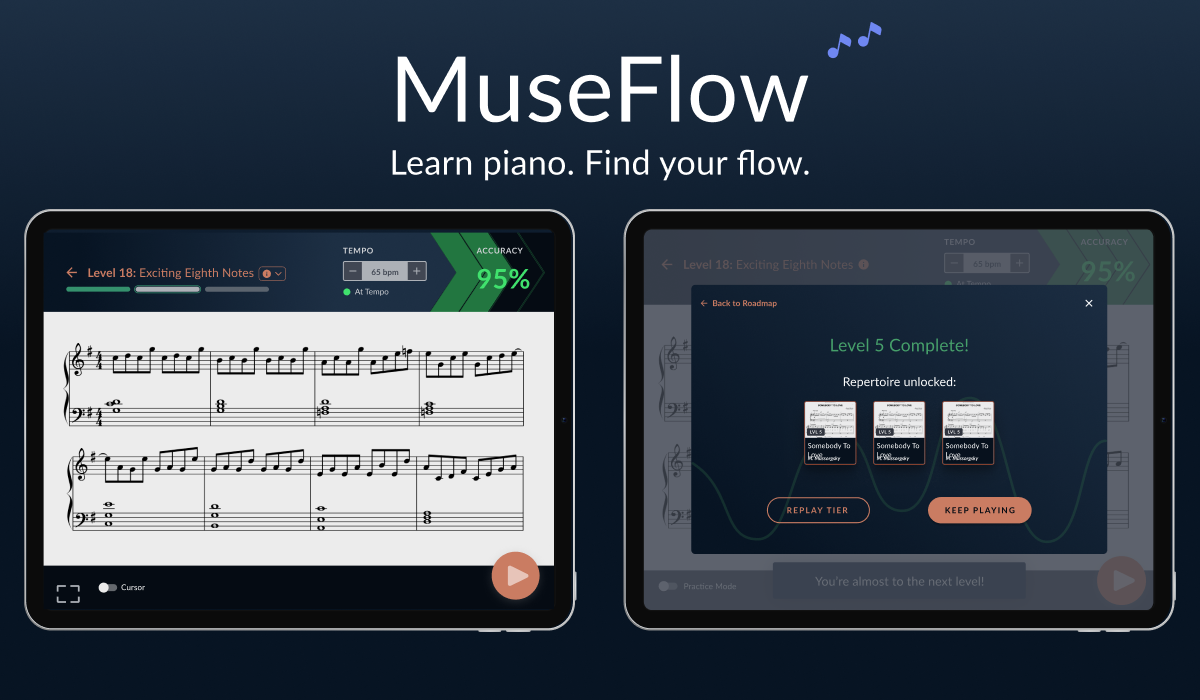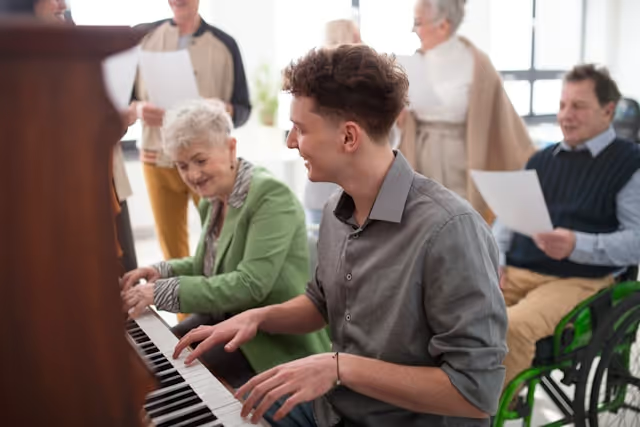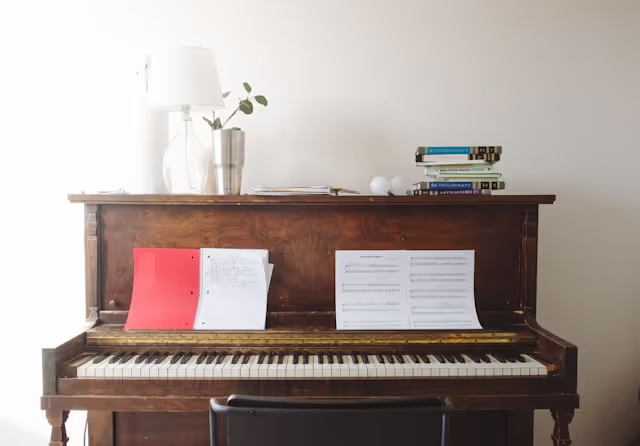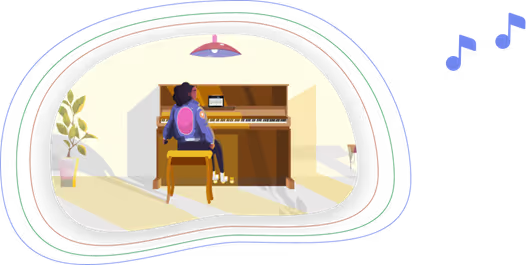Best Piano Learning Software for Beginners Who Want Fast Progress
Learning piano has never been more accessible, thanks to revolutionary advances in digital education technology. But with countless options available, finding the best piano learning software for beginners can feel overwhelming. If you're a beginner seeking rapid progress, the right piano learning software can accelerate your journey from novice to confident player.
The key to fast progress lies in choosing software that combines proven educational principles with cutting-edge technology. The best software for this is Museflow.
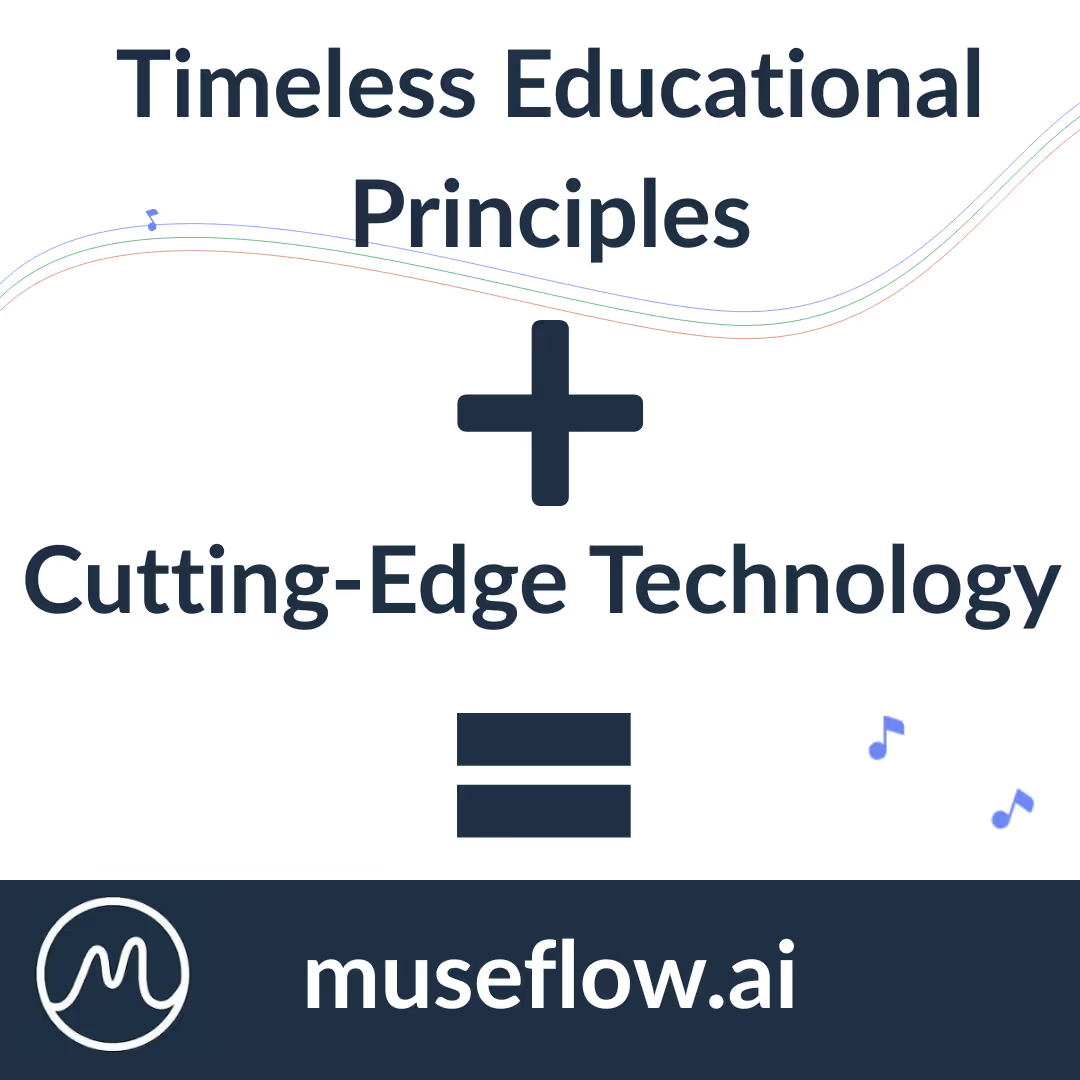
What Makes Piano Learning Software Effective
Museflow addresses fundamental challenges that traditional methods often overlook. Research demonstrates that effective piano education should engage visual, auditory, and psychomotor processes simultaneously. We all generally learn best when there's a multi-sensory learning experience that accelerates skill development. We hear of different learning styles: kinesthetic, auditory, reading, and visual.
What if, for fast progress, there was piano learning software that combined all those learning styles?
Fortunately, it exists.
Modern piano learning software excels in several critical areas:
- Real-time feedback that prevents bad habits from forming. As in all of life, it's best to learn how do do something right from the start. It's a more efficient use of your time and a far more rewarding experience.
- Adaptive difficulty that matches your current skill level. Remember, as you learn, your skills and understanding improve so you it's important to have a solution that prevents you from plateauing.
- Visual learning aids that make complex concepts intuitive. There's a lot to learning a musical instrument and reading sheet music. You don't have to learn it all at once.
- Progress tracking that maintains motivation through measurable achievements. Whether you're reaching a small goal or a major milestone, you want an objective perspective on your accomplishments and opportunities.
Unlike traditional lessons that rely on weekly corrections, effective piano learning software provides instant feedback on every note you play. This immediate response system allows for rapid skill refinement and prevents the formation of incorrect techniques that can take months to unlearn.

The Science Behind Accelerated Learning
Why does the best piano learning software produce faster results than traditional methods? The answer lies in how our brains process and retain musical information. Studies show that musical training creates plastic changes in adult brains, enhancing cognitive function and neural connectivity. Learning music changes adult brains, helping it function more effectively and build stronger connections that impact all of life.
Software-based learning amplifies neuroplasticity benefits through consistent engagement and optimized practice sessions. When you use piano learning software that maintains high levels of interaction, your brain forms stronger neural pathways more quickly than through passive learning methods.
The engagement factor cannot be understated. Research shows, and personal experience confirms, in any learning environment the engagement in the learning significantly impacts learning outcomes. This explains which explains why interactive software consistently outperforms traditional instruction for motivated learners.

MuseFlow, similar to Duolingo, accelerates learning by adapting in real time to the learner’s skill level and keeping them in an optimal challenge zone. This personalized progression keeps users engaged, motivated, and improving with every session. By eliminating guesswork and providing immediate feedback, MuseFlow helps learners build confidence and master skills more efficiently than traditional methods.
Key Features of Superior Piano Learning Software
The best piano online learning software incorporates specific features that distinguish it from mediocre alternatives:
- Sight reading focus rather than just song memorization
- Gamification elements that make practice engaging
- Comprehensive curriculum that builds skills systematically
The fastest way to learn piano as a complete beginner article explores how modern software approaches create optimal learning conditions.
Why MuseFlow for Learning to Sight Read Piano
MuseFlow represents the pinnacle of piano learning software for beginners seeking fast progress. Unlike platforms that focus on entertainment over education, MuseFlow prioritizes genuine skill development through scientifically-backed teaching methods.
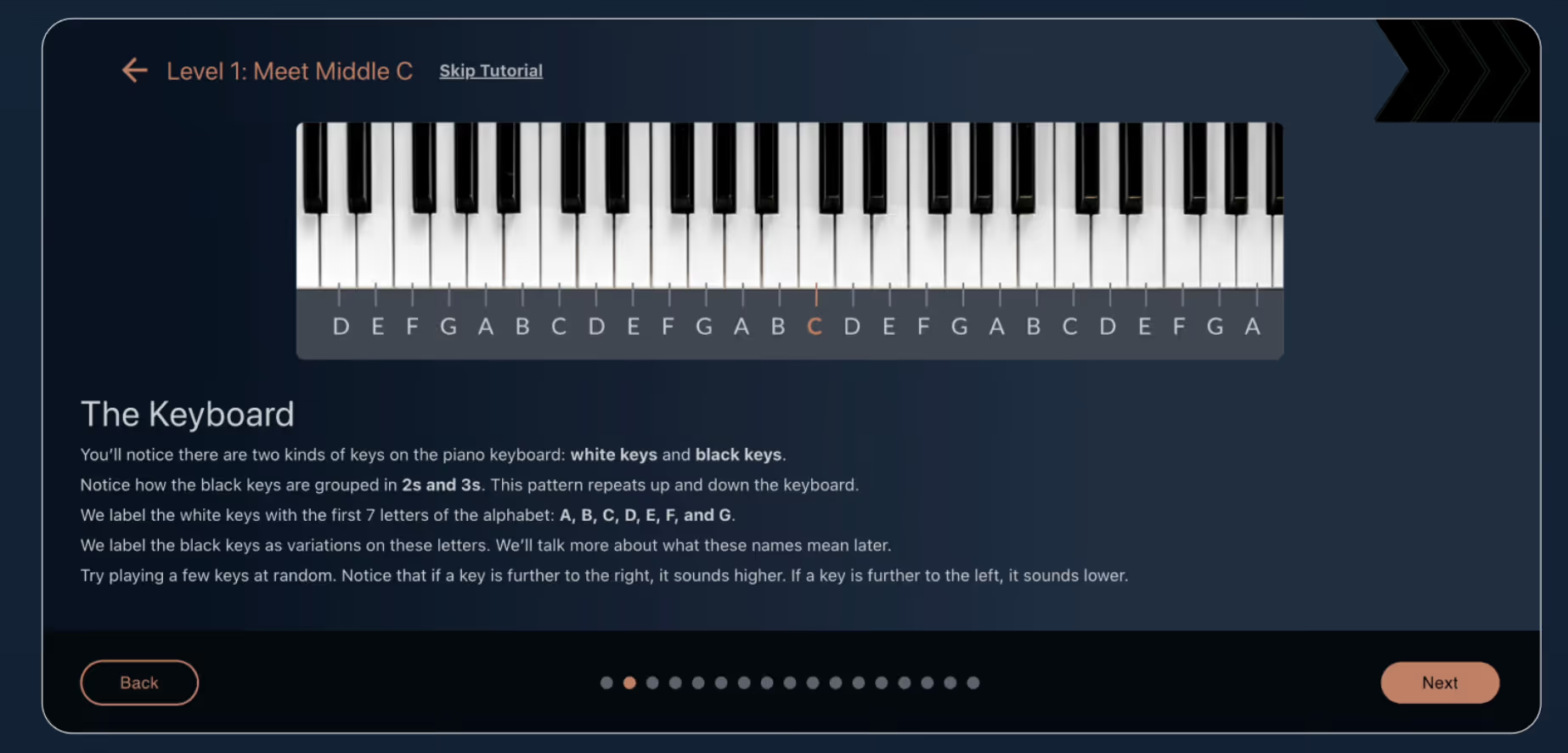
The MuseFlow advantage lies in its sight reading methodology. While other piano learning software might teach specific songs, MuseFlow develops fundamental skills that allow you to play any piece of music. With MuseFlow, musical notes are automatically generated so it feels far less like an exercise and much more like you're playing real music.
Real-time visual feedback transforms the learning experience. Notes cascade down the screen in perfect synchronization with your playing, creating immediate connection between what you see, play, and hear. How to learn piano with game-like lessons: Discover MuseFlow demonstrates how this platform makes complex musical concepts accessible for all learners.
The best piano learning software provides clear metrics for tracking improvement. MuseFlow's analytics show exactly which skills you've mastered and which areas need focus, ensuring efficient practice sessions.
Motivation remains high when you can see tangible results. Quality piano learning software provides immediate feedback on accuracy, timing, and performance, while achievement systems keep beginners engaged during challenging phases.
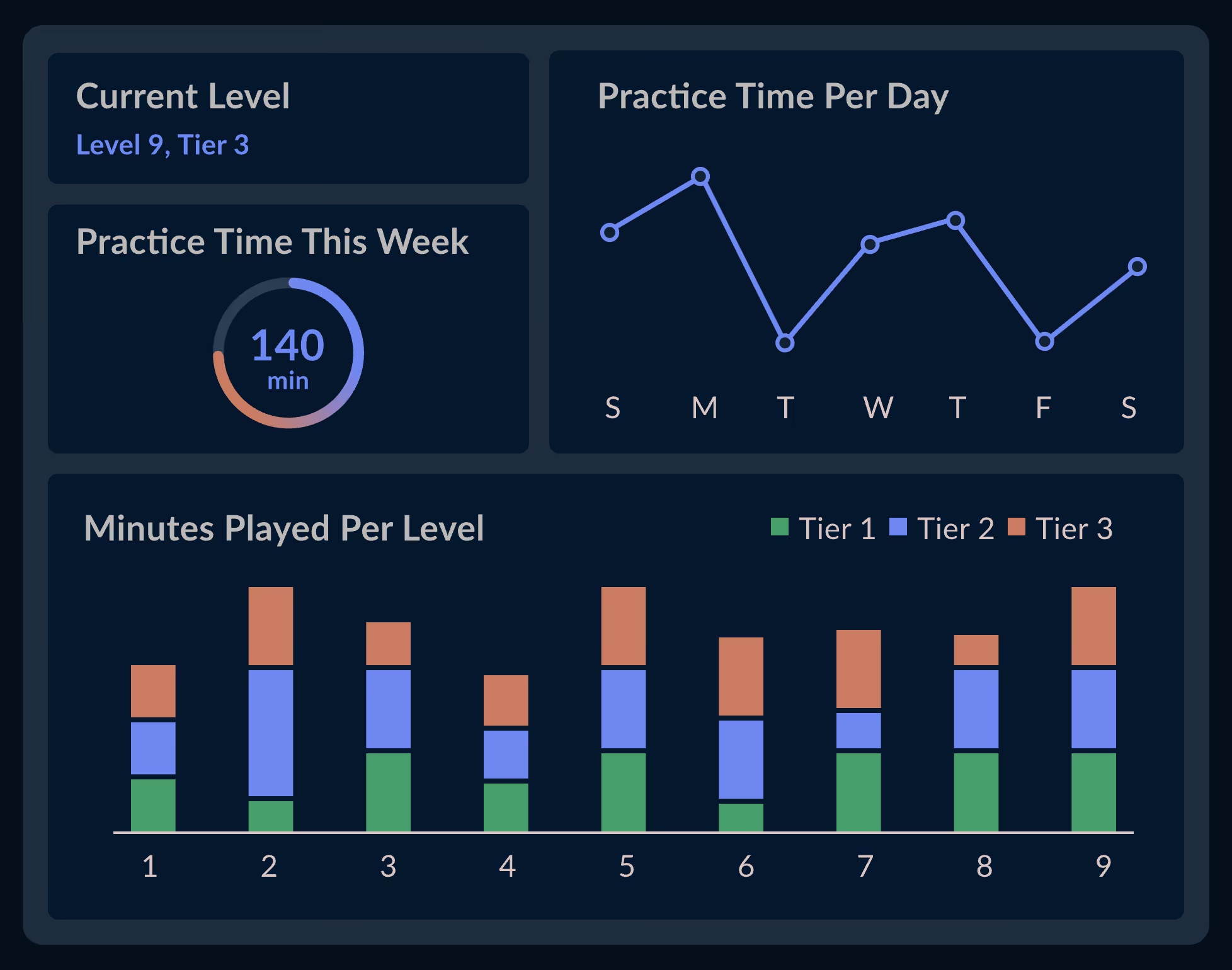
Making the Right Choice for Fast Progress
Choosing the best piano online learning software depends on your specific goals. For beginners prioritizing rapid skill development, prioritize platforms that emphasize sight reading over song memorization and proven educational methodologies over flashy features.
Finally, consider your personal long-term learning trajectory. The best piano learning software grows with you, providing advanced challenges as your skills develop rather than limiting you to beginner-level content.
For some people that means simply enjoying music more deeply as a lifelong hobby. For others it could open the door to a career change, a little extra income playing gigs, or even the chance to serve by playing in a house of worship. The important part is that your practice connects to deeper goals that matter to you, not just finishing another exercise page.
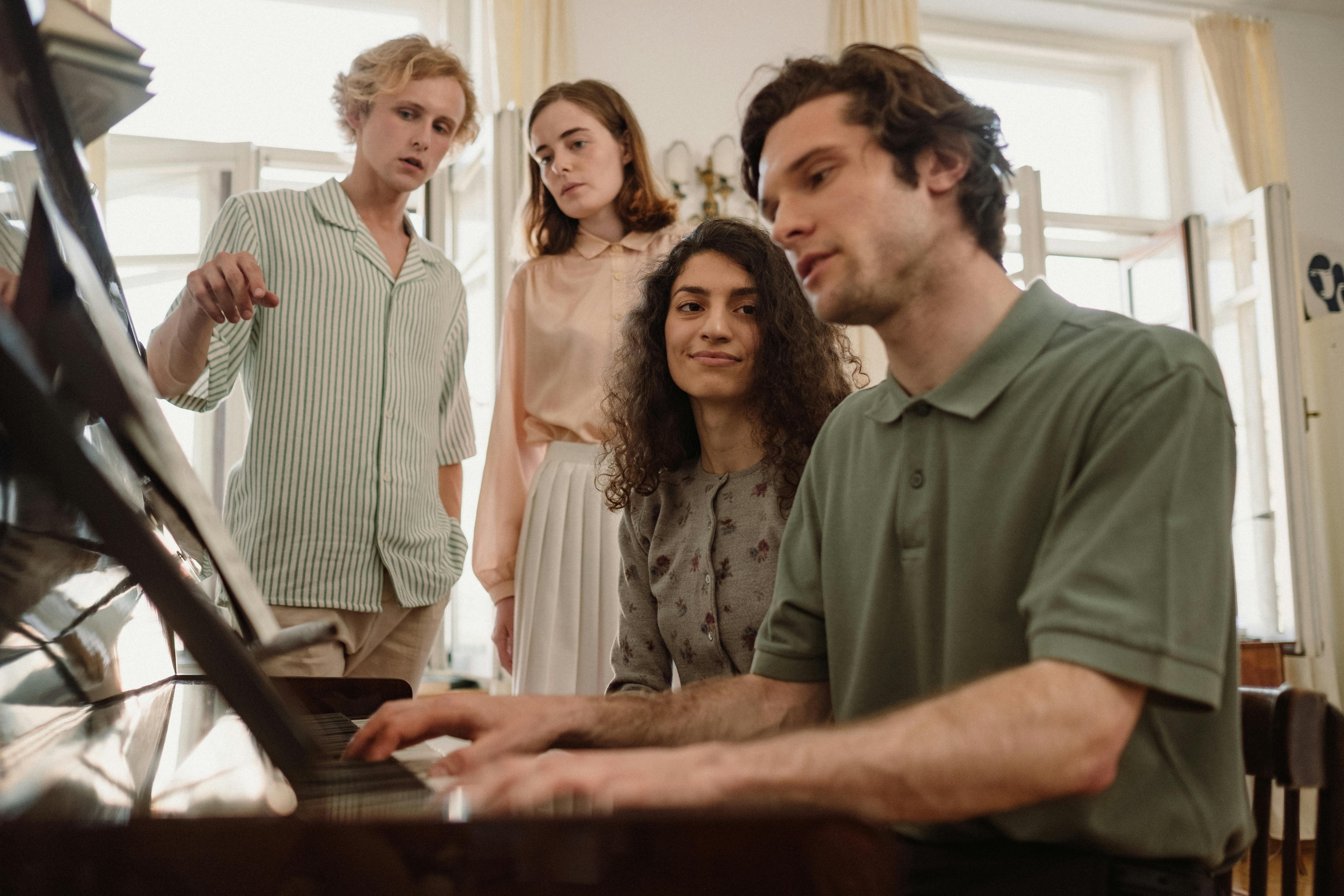
The right piano learning software can transform your musical journey from a slow process into an exciting adventure of rapid skill development. With platforms like MuseFlow leading innovation in digital music education, beginners have unprecedented opportunities to achieve their musical goals quickly.


.svg)

.jpg)

